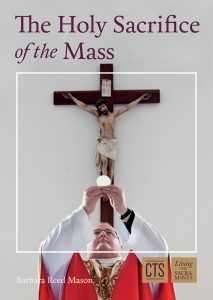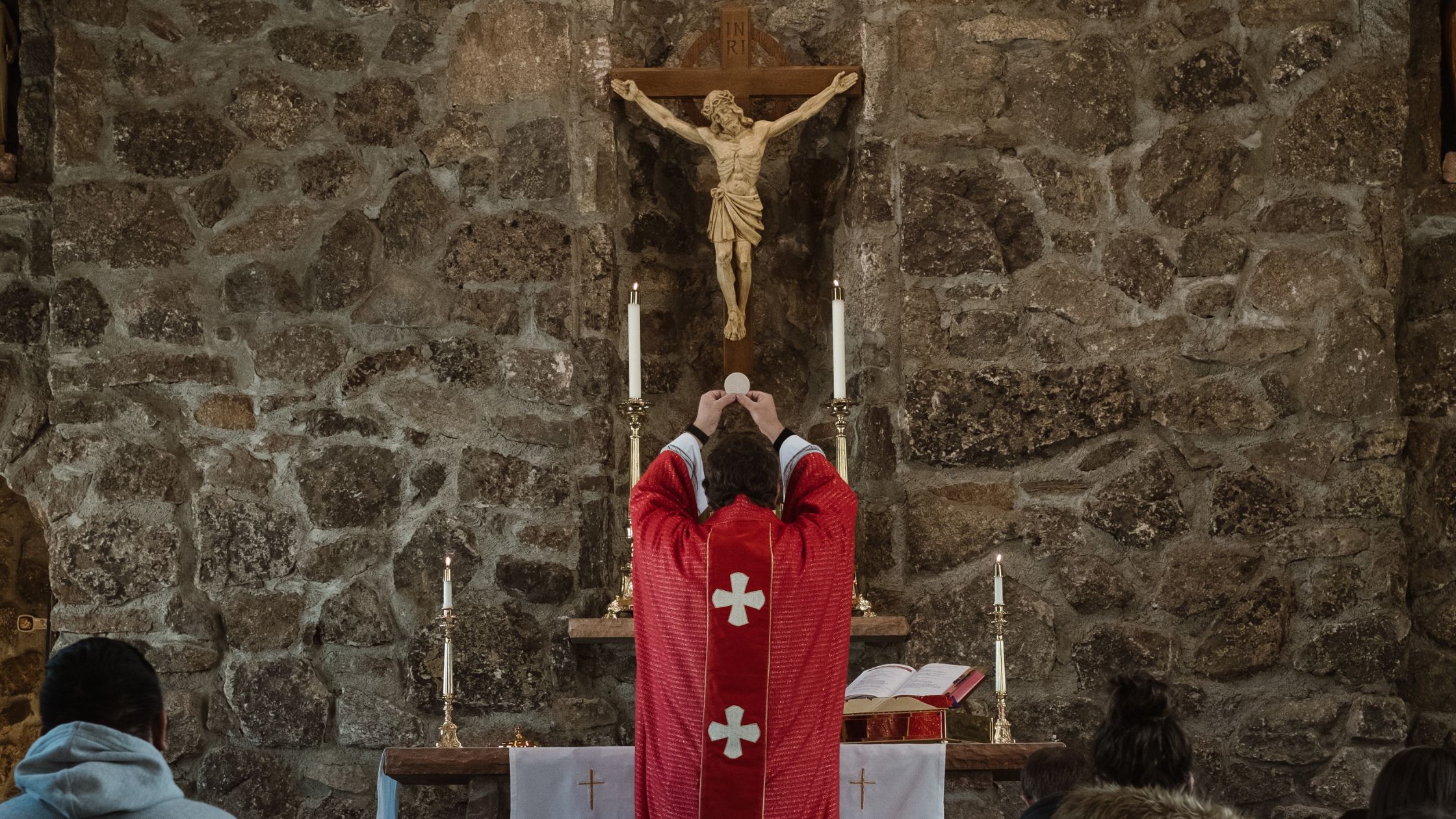The Holy Sacrifice of the Mass is the same sacrifice as that of Jesus on the cross at Calvary, “a real event that occurred in our history, but it is unique: all other historical events happen once, and then they pass away, swallowed up in the past. The Paschal Mystery of Christ, by contrast, cannot remain only in the past, because…[Christ] participates in the divine eternity, and so transcends all times while being made present in them all” (CCC 1085, author’s emphasis).
The Son of God is both fully man and fully God: he has a human nature and a divine nature. As man, Jesus Christ lived in time, at a particular moment in history. Time is a creation of God: there was a beginning of time and there will be an end of time.
But because the Son of God is divine, he is eternal – without beginning or end, the “Everlasting Now”. So, Time and Eternity meet in the Person of Jesus Christ – which is why we are able to be actually present at the foot of the cross on Calvary at every Mass.
It is also why it was possible for Christ to offer his one and only sacrifice for all human beings: “There is not, never has been, and never will be a single human being for whom Christ did not suffer” (CCC 605).
This truth of our faith is referred to by the Church as a “mystery”, which does not mean something obscure or unreasonable. On the contrary, the theological definition of “mystery” is: “religious truth divinely revealed, especially one beyond human reason” (The Concise Oxford Dictionary). According to the Catechism,
The sacrifice of Christ and the sacrifice of the Eucharist are one single sacrifice: “The victim is one and the same: the same now offers through the ministry of priests, who then offered himself on the cross; only the manner of offering is different.” “And since in this divine sacrifice which is celebrated in the Mass, the same Christ who offered himself once in a bloody manner on the altar of the cross is contained and is offered in an un-bloody manner…this sacrifice is truly propitiatory.” (CCC 1367)
You may ask, “But don’t we hear in the Mass the words, ‘Do this in memory of me’?” Yes, we do. In the context of the Eucharistic celebration, the word “memory”, or “remembrance”, rests on the Hebrew root word “zkr”, which, in Judaism and the Old Testament, means making present the past so that it can be effective in the present. For the early Fathers of the Church, it meant bringing before the Father the one, complete sacrifice of his Son Jesus Christ, so that its power is experienced and effective within the Eucharist and thus received by those present.
 This blog is extracted from our book The Holy Sacrifice of the Mass by Barbara Reed Mason. Every time the Mass is celebrated, something astonishing occurs: the Sacrifice of Jesus Christ on the Cross is made truly present. Drawing on Sacred Scripture, the Catechism, and the words of saints and popes, this book explains how the Sacrifice of the Mass unites the faithful with God.
This blog is extracted from our book The Holy Sacrifice of the Mass by Barbara Reed Mason. Every time the Mass is celebrated, something astonishing occurs: the Sacrifice of Jesus Christ on the Cross is made truly present. Drawing on Sacred Scripture, the Catechism, and the words of saints and popes, this book explains how the Sacrifice of the Mass unites the faithful with God.
Learn more about the sacrificial nature of the Mass and support the mission of CTS by ordering your copy of The Holy Sacrifice of the Mass today.
